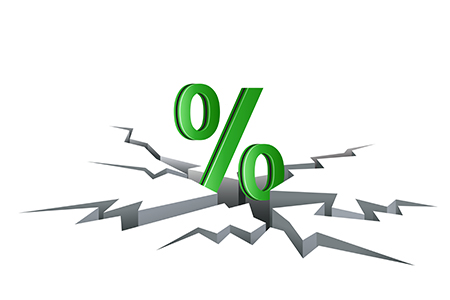Understanding the Mortgage Process
Understanding the Mortgage Process
Mortgages. Most of us need one in order to purchase property, a Home, or a business property. Technically speaking, a mortgage is a long-term financial agreement in which a homebuyer borrows money from the lender to purchase a property. The borrower must agree to make periodic payments of an agreed amount of money to the lender, usually monthly. These payments are typically calculated as an interest rate times the outstanding loan balance plus any fees and charges, such as points and origination fees. Visit www.LendAnnArbor.com to access a list of the county's Top Lenders. Pick someone at the top of the list and get started with your pre-approval today.
Mortgages also make it possible for people who are already owners to borrow against the equity in their current residences so they can embark on new projects or experiences with confidence. Read on for some information from real estate pro Tom Stachler.
Types of Mortgages
Fixed-rate mortgages have a fixed interest rate for the life of the loan. They are typically best for people who plan to stay in their homes for a long period of time or those who want stability and consistency with their monthly mortgage payments.
Citizens Bank explains that adjustable-rate mortgages have an interest rate that changes periodically based on market conditions. They can be good for people who expect their income or financial situation to change over time because they can take advantage of lower rates when they're available by refinancing before rates go up again.
FHA VA loans are insured by the Federal Housing Administration, which is a division of the Department of Housing and Urban Development. They offer lower down payment requirements and flexible credit guidelines and require private mortgage insurance, which is paid monthly as part of your mortgage payment.
Conventional mortgages are loans that do not have government backing. They offer a variety of loan types to suit your needs but require a higher down payment than an FHA or VA loan.
What to Have Ready When Looking for a Mortgage
Mortgage companies require a lot of documentation to see if you qualify for a loan and what type of loan you should get. They will also check to ensure there are no errors in the documents you provide them with. Some of the documents required are:
-
Pay stubs and proof of employment, and all other forms of income.
-
Bank statements for the previous 30-60 days
-
Copies of your credit report.
-
Documents showing loans, credit card debts, and all financial obligations.
-
A copy of your previous year’s income tax statement.
-
A letter stating any discrepancies or explanations for problematic items found.
What to Expect When Closing the Sale
Framework points out that the closing is the final step in the home purchase process, where you will sign all of the legal documents and receive keys to your new home. The closing usually takes place at a title company or lawyer’s office.
You will be asked to bring your original copies of all relevant paperwork from your lender, attorney, and real estate agent. You may also need to bring copies for any other parties involved in the transaction.
A title company representative will review all of your paperwork with you and explain what each document means. Then the title company representative will ask you to sign each document before they can proceed with the transaction. They may also ask that you sign some documents after they have reviewed them with you first.
How to Handle All Those Documents
Digital copies of all your documents will not only serve as a good backup for all the paper documents you have to contend with during the home-Buying process, but you will also be able to save money and avoid the hassle of printing out copies and delivering them in person. And digital copies of your documents can be easily shared with other people, with everyone being able to access them from any device, anywhere. The only thing you need is a scanner or a smartphone to make a digital copy of your document.
It’s easy to organize those digital files by using a PDF editing tool that allows you to split a PDF. There are many such free tools out there to choose from, but you can save searching time by clicking this to discover how to complete the process in five quick and easy steps. With them, you can split a large PDF into multiple, smaller files, allowing you to quickly separate PDF pages. Once you save the file, you can rename, download, or share the new PDFs with others..
Understanding what mortgages are, as well as the different types of mortgages, can mean a big difference in how much you pay for one and can ensure you’re making the smartest financial decision. Then, being prepared for what to expect during the process and staying organized throughout can make for a much smoother home-buying experience.
When you have a real estate need, question or need a Contractor Discount/referral, give Tom Stachler of Real Estate One and the Group One Realty Team the opportunity to help you with a recommendation or find your next home. Team up with Tom today by calling (734) 996-0000! or visiting www.TheRealtyTour.com







